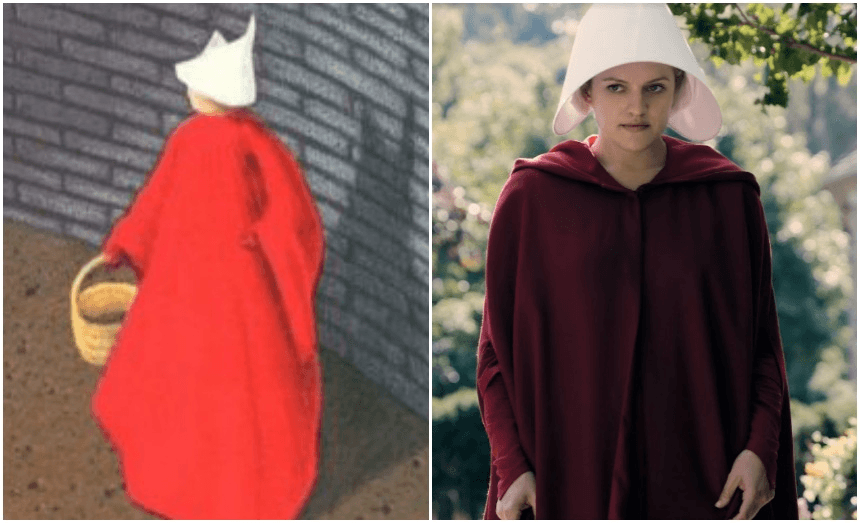Sophie Smith, a superfan of Atwood’s dystopian novel, reviews the first episode of The Handmaid’s Tale.
I first read Margaret Atwood’s The Handmaid’s Tale in one evening when I was working the night shift at a mine (the processing plant was down and out – and on that particular shift it actually wasn’t my fault). It made me forget about absolutely everything else in the world.
It made me forget how shit it was to work the 7pm to 7am shift, and it made me not care that this particular winter night got so cold that the heat pump literally froze and stopped working, and I had to stand next to an open laboratory oven to keep warm. I whipped through the whole book during my 12-hour shift, and to say it made an impression on me would be a vast understatement. Quite honestly, it changed my life that night.
With that in mind, I began the first episode of the television adaptation of The Handmaid’s Tale with a mixed bundle of extremely high expectations and equally nervous apprehension (would they get it right? Do they understand the text like I do??). By the end of the episode, I was full of both dread and a reasonable bout of nausea.
And you know what? That was absolutely the best reaction that I could have possibly hoped for.
In no way was The Handmaid’s Tale ever going to fall under the banner of “feel-good” telly. This shit is raw and tense and horrifying and inconceivably unjust and so very, very bleak. Within the first few minutes there’s a car chase, an on-foot pursuit through a forest, a murder, the separation and abduction of a mother and a child. The accompanying soundtrack of heavy guttural strings mixed with distorted pop music is the sonic embodiment of absolute dread.
We meet Offred (“Of-Fred”, belonging to Fred) officially in current-day Gilead. She tells us that she had another name, but it’s forbidden now, like nearly everything else. Throughout the episode, I felt sicker and sicker as life in Gilead was revealed. The story sticks closely to the book in this episode, so I knew what to expect, but seeing this world on screen caused nothing short of a visceral reaction in me.
There are few winners in this dark place. Aunt Lydia forces the handmaidens to scream that a sexual assault was another handmaiden’s fault, Janine’s eye is plucked for talking back, people are hanged and left to rot, Offred has to clean herself like a “prize pig” for her rape. Even the Commander’s barren wife suffers as a result of this regime. Not to mention the overall purpose of the handmaidens’ enslavement: bearing children for the elite of society.
Life, as we know it in 2017, is also shown to be the uncomfortably recent past in The Handmaid’s Tale. References to Uber, the flashbacks that show a very familiar world, and Gilead’s infertility crisis of 2015 shove this fact in our faces: a downward spiral can happen pretty bloody quickly if we aren’t careful. Talk of suspending the constitution and living under martial law to prevent the rise of terrorism are features that place this show disturbingly in today’s reality. We are forced to confront the undeniable possibility of a future that truly mirrors Gilead.
The thing that brings about the most trepidation in The Handmaid’s Tale is the knowledge that this is real. The things that happen are not actually confined to a far-fetched dystopian fiction, these kinds of things happen in our fucked-up world right now. I challenge anyone to get through this incredibly powerful hour of television, to engage with the undeniable reality of this world, and not feel at least a little nauseated.
I am a cynic and a pessimist, and I won’t deny that I derive something of a sick pleasure from incredibly grim dystopian fiction. To be honest, I would have been satisfied if this show just gave me more justification for that misanthropic agenda. But there’s no way I can reduce it simply to that.
Because ultimately, The Handmaid’s Tale is powerful because of the unbreakable resilience, defiance, and strength of its women. It may be bleak and dreadful, but one thing it isn’t is completely hopeless. Don’t let the bastards grind you down. Her name is June, goddamn it, and she intends to fucking survive.
Click below to watch The Handmaid’s Tale, exclusively on Lightbox:

